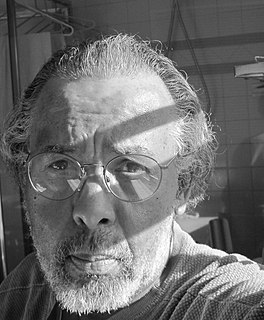A Quote by Nicolas Boileau-Despreaux
Related Quotes
After we have thought out everything carefully in advance and have sought and found without prejudice the most plausible plan, we must not be ready to abandon it at the slightest provocation. should this certainty be lacking, we must tell ourselves that nothing is accomplished in warfare without daring; that the nature of war certainly does not let us see at all times where we are going; that what is probable will always be probable though at the moment it may not seem so; and finally, that we cannot be readily ruined by a single error, if we have made reasonable preparations.
The philosopher forms his principles on an infinity of particular observations. He does not confuse truth with plausibility, he takes for truth what is true, for false what is false, for doubtful what is doubtful, and probable what is probable. The philosophical spirit is thus a spirit of observation and accuracy.
I do not pretend to be able to prove that there is no God. I equally cannot prove that Satan is a fiction. The Christian god may exist; so may the gods of Olympus, or of ancient Egypt, or of Babylon. But no one of these hypotheses is more probable than any other: they lie outside the region of even probable knowledge, and therefore there is no reason to consider any of them.
Although this may seem a paradox, all exact science is dominated by the idea of approximation. When a man tells you that he knows the exact truth about anything, you are safe in inferring that he is an inexact man. Every careful measurement in science is always given with the probable error ... every observer admits that he is likely wrong, and knows about how much wrong he is likely to be.
There is, in fact, no reason to believe that any given natural phenomenon, however marvelous it may seem today, will remain forever inexplicable. Soon or late the laws governing the production of life itself will be discovered in the laboratory, and man may set up business as a creator on his own account. The thing, indeed, is not only conceivable; it is even highly probable.
A Christian boy or girl can learn mathematics, for example, from a teacher who is not a Christian; and truth is truth however learned. But while truth is truth however learned, the bearing of truth, the meaning of truth, the purpose of truth, even in the sphere of mathematics, seem entirely different to the Christian from that which they seem to the non-Christian; and that is why a truly Christian education is possible only when Christian conviction underlies not a part but all, of the curriculum of the school.
Truth is the most powerful thing in the world, since even fiction itself must be governed by it, and can only please by its resemblance. The appearance of reality is necessary to make any passion agreeably represented, and to be able to move others we must be moved ourselves, or at least seem to be so, upon some probable grounds.
Socially and politically, we seem to be living in dire times, worse times than in the past. But there were far worse horrors in our past. The writer's role is to be a truth sayer. I sincerely believe that each society, each country lives by a particular fantasy vision, a fantasy vision of itself. The truth of how they live is hardly ever faced.





































